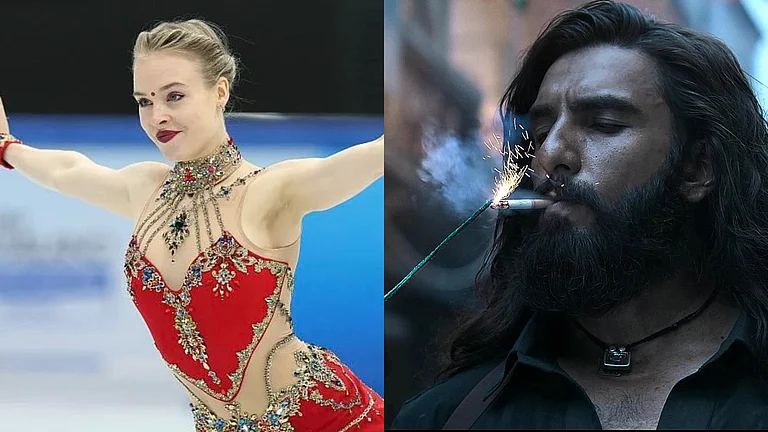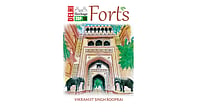This is the story of an ordinary man who grasps at the wrong branches on the tree of opportunity. It is also the story of the three cities that make up the one we know: Calcutta, Kolkata and Kalkatta. Jami, the book’s centre, is a Bihari migrant who has arrived in the city via Bangladesh with his family. Through a relative, they find a thek in one of those old crumbling mansions stuffed with families and trailing wires that constitute Zakaria Street, a building that would be a heritage property if someone noticed it. Zakaria Street is a diaspora cheek by jowl with the Nakhoda mosque, the attar sellers and the street gangs, ruled by Jami’s uncle, a Communist who loses his election and his power, but gets Jami a job in a travel agency. And from there Jami’s choices begin.
He drops out from studies and catches the eye of a ‘hot’ older woman by the name of Monica. Monica sets out to seduce him with branded clothes and plush cafe society. An innocent at heart despite all the gangs and ganda stuff around him, Jami has no idea where the relationship is going until he finds himself working in the Champaka massage parlour and servicing a variety of ‘parties’—that ubiquitous word which encompasses all kinds of service, both legitimate and illegitimate. There he makes friends with a hijra called Rani who runs the parlour and warns him about falling in love, ‘the most common disease’ in their profession. The gigolo lifestyle earns Jami pocketfuls of hard cash and brings him into contact with a surprising variety of women, including one who looks like a maharani, but is a sado-masochist, yet fails to tarnish his innocence.
Those familiar with Umrao Jaan might be tempted to hazard a guess at where all this is going but Basu deliberately avoids the obvious pangs of romance. Instead, Jami gravitates from the Kalkatta of Colootola to the Kolkata of Keyatola, which is the cultured Bengali’s refuge and accidentally runs across one of his travel agency colleagues, the beautiful Mandira and her critically ill son, Pablo. Jami falls in love—not with Mandira but with Pablo, and at one level he identifies with the child who is a puppet of fate and he does his best to help, but fate continues to trip him up.
No wonder, the book starts with Jami’s search for Indian nationality in a room where an old cockroach taunts an equally ancient lizard, Basu’s metaphor for the game that life plays with Jami, never allowing him to find his true self or fit in as an Indian national. He encounters every possible problem, from becoming a gigolo to becoming a police informer, or ‘lizard’, with the attendant problem of a sister crippled by polio and threatened by third degree—and he finds himself beginning to identify with Job Charnock, the outsider who united three villages into a metropolis. However, Jami is continually betrayed by his wish to belong. Things happen to him—he does not happen to them. He neither uses his looks to his advantage nor manages to find a viable escape route from the world which made him both a Muslim and a male prostitute, a double marginalisation.
There are areas of this city where you can find beauty parlours squeezed in between the carcasses of goats hung up for sale, putting a different spin on ‘meat’. The kind of thing one expects on first seeing the book—that disturbing cover of a dog’s head on a man’s body, so directly bestial, which makes you tread warily around it until you pick it up with a sudden determined dash. While the book encompasses the seamy underbelly of Zakaria Street and the appropriate slang terms for body parts, perhaps it requires something of Narcopolis’s high on opium poetry or a touch of Toby Belch somewhere.


























